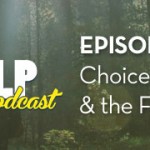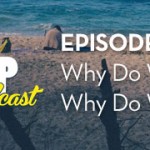Memories
Why Remember Anything?
What is memory for?
Memory happens in all sentient beings. It’s primary function is that of safety. Memory tells us what is safe and what is a threat. When we are able to remember we are able to survive in safety.
Over time we lose memory
Psychologically we remember things because we are emotionally connected to events. This means that the connection is relevant or important. When things or people cease to be relevant we forget who or what they are. This may seem difficult for the person who we forget, it may seem that they are now not important to us. Often the reason that we forget is overload and we have so much to remember that we forget who people are.
However, sometimes when we lose memory we have structural decay. The white matter in the brain is the tissue that connects the grey matter, which is the hardware of the brain. Issues of dementia are when the structure of the brain is breaking down.
How far back can we remember?
Our earliest cognitive memories go back to age 2 to 3 years old. Most of us can remember these early years. Prior to that age our memory is emotional. We may not be able to remember what happened in a logical or visual sense but we can remember what we felt at that time. Often this creates the foundation of later emotional feeling. Perhaps we feel generally anxious, or angry, sad or happy and we say that is just the way that we are. Well it is not. It is simply what we learned when we were little.
The structural memory of the cognitive mind is like an attic, that is full of boxes of memories. It is a repository of information. When the boxes get turned over there is confusion as the contents of the boxes become mixed up. People will actually say “a leopard can’t change it’s stripes”, this is confusion.
Hypnotherapy is the therapy that intervenes in memory. Aversive hypnotherapy is described as suggestive. What that means is the therapy is putting something into a memory box. If someone smokes cigarettes then perhaps we can include the memory of sweaty socks or burning tyres into the memory, so that every time someone put a cigarette in their mouth they experience that horrible taste in their mouth, they are averted from smoking.
Analytical therapy is about taking stuff out of the box. If people have inappropriate associations. perhaps rice pudding has been included in their sex box. This means that there needs to be rice pudding involved for them to become eroticised, then the therapy is about taking this out of the memory.
Advertising and propaganda are about aversive and suggestive memory. They seek to change the memories of the population.
Unwanted memories as intrusive thoughts or flashbacks can become problematical. Such emotional memories happen after trauma or post traumatic stress disorder, PTSD. In this case memory is visual and emotional. Therapy involves desensitisation or rewinding of the problematic memory.
The last point is that we are each able to create our future memories, Thoughts become things. When we wake everyday we decide how the day will be. We are creating it in advance. This is forward memory. If we decide that the day will be bad then we are right and it will be. Equally If we decide that the day will be wonderful we are also right. In creating forward memory “thoughts become things”. We have a choice.
Take care, be happy and think positively about the day ahead…Thoughts become things!
Sean x




Trackbacks & Pingbacks
[…] Here’s a link to this week’s blog post by Sean […]
Leave a Reply
Want to join the discussion?Feel free to contribute!